#Loeries2020: The business of belonging and how inclusivity can evolve a brand (part one)
In doing so, she shared a bit about her journey in terms of her career experience and her work with brands and her brand partners, such as Unilever and Dove, Disney Princess and the world’s most famous doll, Barbie, and how it has brought her to where she is today.
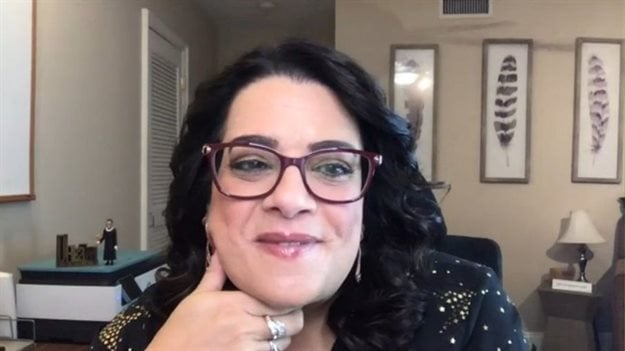
She took us way back to when she was a child, saying that it was then that she started questioning the decisions that were being made around representation in the media. “Here’s me at 12, I think. I was quite in love with TV though, that I knew, I loved the media, and I actually loved advertising. I was a child of the 80s, so I had no choice but to watch commercials, but I loved it. Although as a young girl I often recognised that there weren’t other little girls who looked like me or my friends, and I was always curious who was in charge of making those decisions, and I was always curious how those stories got told and who decided who got to be in the centre of those stories.
This curiosity led to her working at the intersection of representation and media marketing and advertising and starting a global conversation about the impact that stereotype advertising and media, and even stereotypes in the workplace, has on people, and helping to humanise people in media, marketing, advertising and the workforce.
Although she initially started talking to women and girls, she realised that in order to make a real systemic impact, you’ve got to talk to women, girls, boys and men and those who don’t identify in any one of those binary gender categories. “This is really about opening wider, broader and more inclusive than we’ve been before.”
She didn’t know that this was what she was going to do. “I didn’t know that I would end up becoming an entrepreneur. I certainly didn’t know that I would be working at the intersection of representation and media marketing and advertising, but I did know that I loved to speak to people. And I have been speaking to people for well over two decades, to people all over the world.
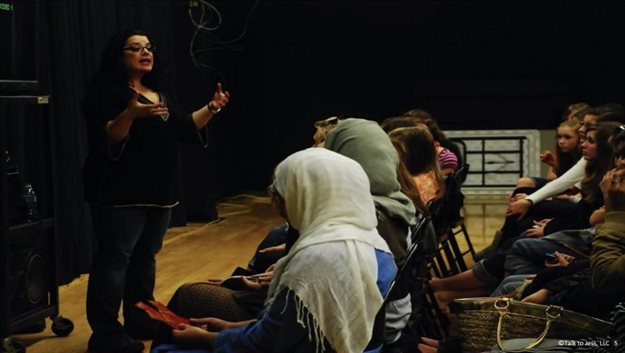
“Candidly, my first passion, my first audience were women and girls because I knew that I wanted to help deconstruct some of the cultural myths that existed in the country I grew up in, the US, but also as I was learning and growing around the world, I wanted to have a global conversation about the impact that stereotype advertising, media and of course even in our workplace had on women and girls, their mental health, their physical health, their political and social health, and as I began this journey, the biggest component to all of this speaking was really learning how to listen and understand where the themes were similar and different around the globe.”
She said one of the most powerful amplifiers of her work has been her ability to cut through the noise and look at the cultural context of what people are experiencing around the world.
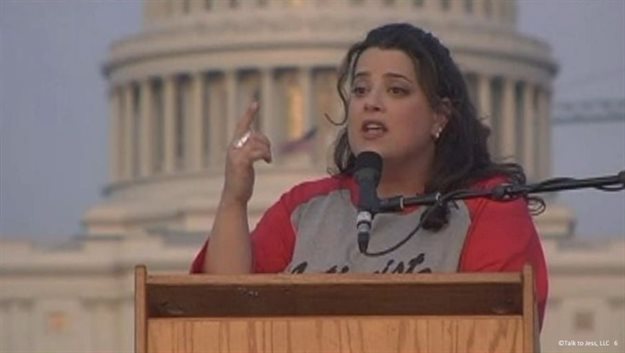
Weiner told us about her advocacy and activism work, her focus on systemic change and how this has shaped her career. She said, “As I listened to those stories, what I really found as I grew and developed was that the systems that were in place, whether they be political systems, corporate systems, they were somewhat outdated, a lot of them, all of them maybe, to where not everybody was allowed to fit. Not everybody was included and the voices were not present in the room.”
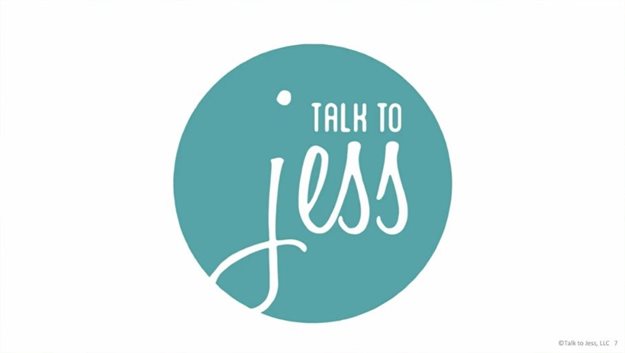
She started her consultancy, Talk to Jess about 15 years ago and shared how she came to the name. “Like all kinds of creative endeavours, I’ve been teaching, I’ve been speaking, I decided that I wanted to consult more broadly, and I’m trying to think of what to call the company. And someone very wise said to me, ‘Why don’t you call it, what is the most commonly asked question you get or the phrase that you hear the most of in your work?, and that’s what you should call it.’ And I thought, I don’t quite know what that is. And then it dawned on me that I would get these phone calls from businesses that would say, ‘Well, we launched this campaign and it really didn’t resonate with consumers and someone said I should talk to Jess, or I would get a call and they’d say, ‘Well, we’ve got a real problem recruiting women for our organisation, somebody said I should talk to Jess, so that’s really what I ended up calling it.”
What started her work in this kind of brand advocacy was the campaign for real beauty with Dove in 2004. “I think about 2002, 2003, I am an educator, I’m a playwright, I am speaking and listening to those stories all over the world and get a call from Dove and Dove is looking to launch this campaign conversation and ask me to come along and shape that with them.” So, she’s been a partner with Unilever and Dove for 16 years.
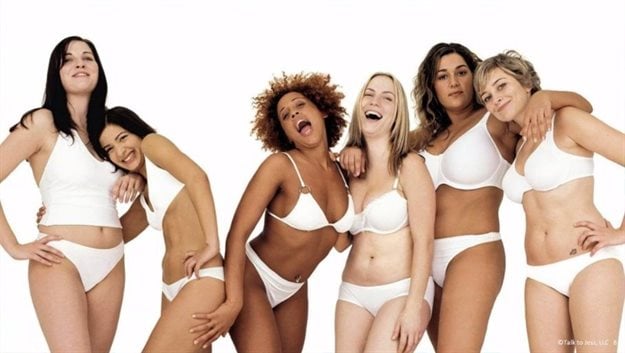
“The origin of this campaign was from a global piece of research that 2% of women worldwide would consider themselves beautiful. It left a large majority of women who would not use that term to define themselves and so the real key insight for this campaign wasn’t just that, it was when we went back to those consumers and we said, ‘How can we help, what do you need, what can we provide that would make that feeling change for you?’ And she told us directly, don’t worry about me, I already feel the way I feel about myself, I want you to focus on the next generation, I want you to make sure that my daughter doesn’t feel the way I do about my appearance,’ and so that unlocked the insight that really helped to shape the worldwide curriculum that Dove has produced.
“I’ve helped to be a part of that and proud to say that we’ve reached over 60 million girls with self-esteem education curricula and in fact Dove has become the number one distributor of free self-esteem content around the world, larger than any NGO or NPO organisation, Dove provides this content and we are continuing to go with some very lofty goals up ahead in the years to come. But this has become a long-term commitment for Unilever and it’s opened up of course conversation around the world around beauty standards and unrealistic beauty ideals.”
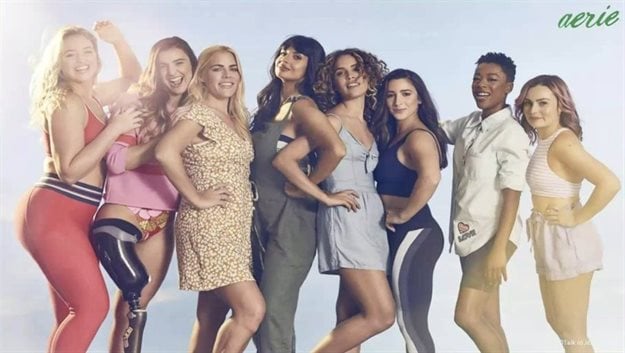
Weiner has since worked on this theme in a number of different brand partnerships and clients, such as clothing retailer Aerie. This campaign in particular is about role models, she said. “They found that it wasn’t just enough to start the conversation around beauty ideals globally, they had to start to replace those ideals with real women. “We had to start to replace those stories with stories that were more relatable to those who were watching and so not only did Aerie pledge to no longer retouch and airbrush, they stopped manipulating their images back in 2014, but they now year after year create, present at an academy of women doing incredible changemaking things in the world. Some of them are well known for their art, others of them well known for their activism and many of them well known for their advocacy on issues that they care a lot about.”
What she’s particularly interested in is how inclusivity expresses itself, how we replace some of those outdated and tired role models and how we challenge the system. “If you go back to that insight from Dove, one key driver for me in my work has always been to go down a generation, down a generation, down a generation, so where is this starting from and how does media sort of imprint for us as young individuals the way that we look at the world and the way that our world is shaped?”
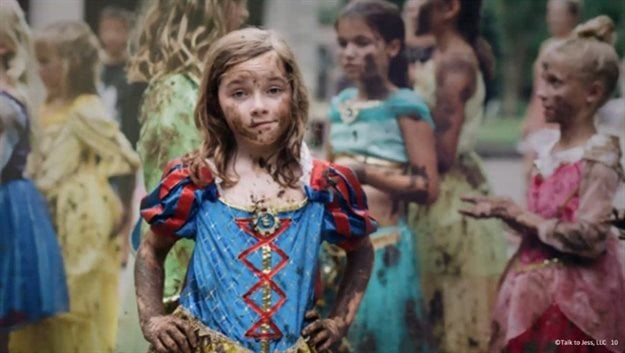
So, something she’s particularly proud to be associated with is her work with Disney on evolving the ‘Disney princess’. “I remember in some of this work with Disney, one of our key insights was that girls were many things. This sounds pretty obvious for those of us who identify as women and girls, of course we’re multi-dimensional, we’re many things."
She calls it the ‘Yes, and' theory. Explaining this, she said: "Those who are familiar with improvisation, you might know this piece: if I walk into a scene with you and I say, ‘The sky is blue’ and you say, ‘No it’s not’, the scene ends, it kind of takes everything down. If I walk in and I say, ‘The sky is blue’ and you say, ‘Yes, and there’s a rainbow’, the scene continues and it grows. We use that approach to talking about the multidimensionality of young girls to say, ‘Yes, they want to be a princess when they are younger and they also want to be president’, ‘Yes, they like sparkles and they like to kick a soccer ball’.
"And, well, I know it sounds very simple as I articulated out loud, as you can imagine from a marketing perspective, it allowed the brand to stay rooted in its work area, which is a lot of selling sparkles and princessy things, and also expand into story arches and meaningful character descriptors that were representative of girls in other dimensions, girls who didn’t want to be saved or rescued but girls, in fact, who wanted to save and rescue the world.
"So, with Frozen, with Milana, with a lot of the new Disney IP and properties, we’ve seen this shift of Disney princess. Also important to note that this was an inspiration to look at because this category was falling pretty soft in 2012 and 13, which is when I started working with them, and a lot of that was because moms here in the US and also around the world were really challenging what their children were playing with. ‘Am I buying the toys and the stories that are going to be most representative of my values as a parent?’.
This was the door that opened her up to working on the Barbie brand. While her talk was really about how inclusivity helped to shape Barbie as a brand, her journey that she was on personally as an advocate, as a creative and as an educator really brought her to this...
Look out for Part 2. For more of our Loeries Creative Week coverage, go to our Loeries special section.

































